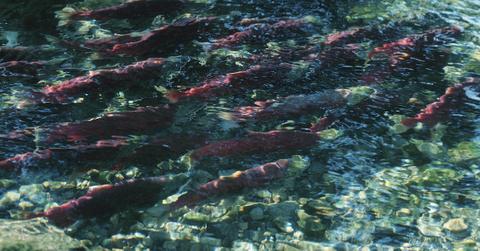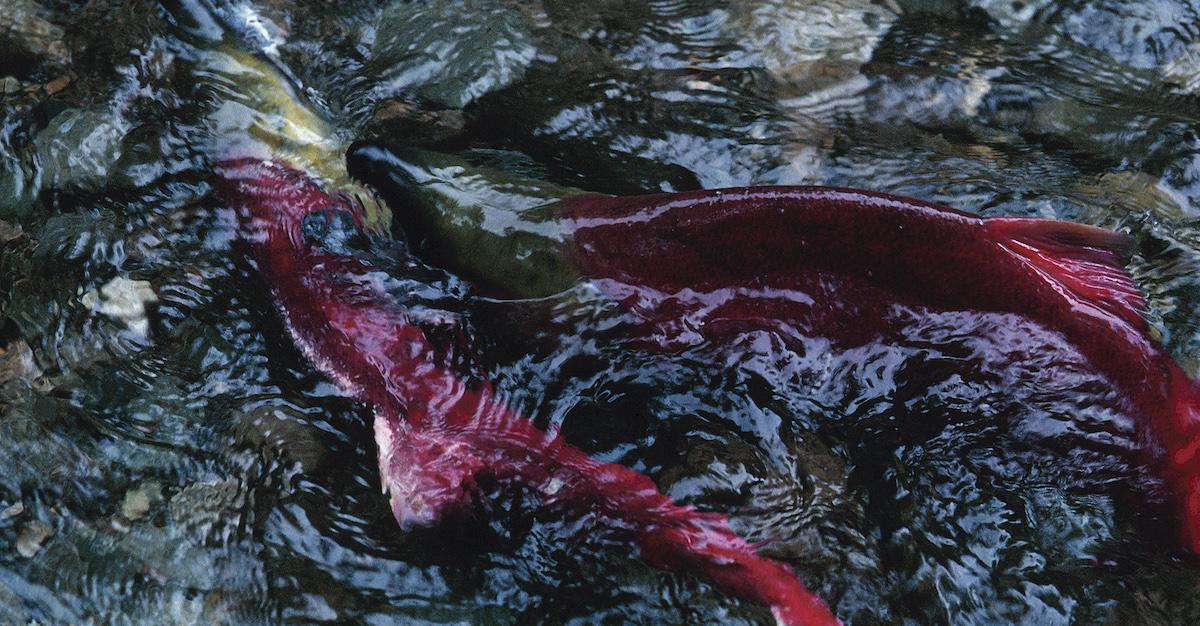Pesticides Don't Only Affect Land Animals — They Can Affect Marine Life, Too
Published Aug. 19 2021, 4:03 p.m. ET

Farmers, gardeners, and animal control alike has been using pesticides for several years, and only recently have they started to transition to more natural means of pest control. Not only do pesticides cause irreparable harm to ecosystems on land, local wildlife, and to the farmers that tend to the plants, but pesticides can also impact waterways and marine life.
Sadly, pesticides take a huge toll on marine life in more ways than one — keep reading for more on this serious issue.

People sometimes use pesticides to kill invasive fish species — harming other marine animals, too.
At the start of 2021, the Department of Fisheries and Oceans approved the use a fish-killing pesticide called rotenone to kill the invasive smallmouth bass living in New Brunswick, Canada's Miramichi watershed, according to CBC. The lake would be treated for two days in August, and then once more later on, killing all the fish in the treated water. The Atlantic Salmon Federation is working to delay this process, and since Monday, Aug. 15, women from the tribe have been canoeing across the lake in protest.
Chief Barry LaBillois sent a detailed report to Jeff Carr, the provincial environment minister of New Brunswick at the time, reiterating the fact that the use of pesticides is too risky, as it can harm aquatic life longterm. Although the smallmouth bass is supposedly taking over the salmon's habitat and eating its food, this would be a huge disservice to the salmon and other native marine life. It would also cause irreparable harm to the Wolastoqey First Nations, who depend on the Miramichi watershed's salmon population for food.
The Wolastoqey First Nations' lawyer, Charles Bryant, said the tribe was not properly consulted on this matter, though they are technically legally obligated to do so.
"They're not saying it's an unconditional no, that this project cannot proceed," he told CBC. "The Wolastoqey mothers and grandmothers are respectful of the process and the decisions of their communities, but this has not gone to their communities yet. The consultation is not complete."
From land, pesticides can make their way into waterways.
Even pesticides solely used on land can harm marine life. According to a report from Virginia Tech, pesticides are often sprayed on certain types of vegetation, and from there, they can enter the ground water, before eventually making their way into larger waterways. This unfortunately happens relatively frequently, killing off fish, amphibians, shellfish, water fowl, and beyond. It's affected some endangered species, and has been a leading contributor to the decline of many fish populations.
Although this can easily prevented, as long as you select cleaner products while protecting your beloved garden, many fail to do so safely, and further contribute to this rampant issue. This happens most frequently when pesticides are used within close proximity to wetlands, lakes, ponds, rivers and streams — but really, it can happen anywhere, and for the sake of those handling the plants, as well as surrounding ecosystems, you're really better off using a natural pest deterrent.